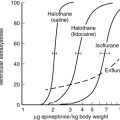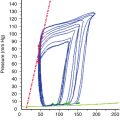Renal function tests
Other clinical and laboratory assays
Urinalysis
Urinalysis is a useful noninvasive diagnostic tool available to assess renal function. Testing includes visual inspection (Table 46-1); dipstick determination of pH (normal 4.5-8.0), blood, glucose, and protein; specific gravity (normal 1.003-1.030); and examination of urinary sediment. In patients with porphyria, urine is of normal color when fresh, but discolors over time when exposed to light (which is a pathognomonic observation). The pH is rarely diagnostic, but in conjunction with serum pH and bicarbonate values, it is useful in evaluating renal tubule acidification function. Dipstick determinations register glucose, but not other reducing sugars; elevations in urine glucose concentrations suggest a diagnosis of hyperglycemia or a tubule defect (e.g., Fanconi syndrome or isolated glycosuria). When the plasma glucose concentration is 180 mg/dL or less, all of the glucose filtered by glomeruli is reabsorbed in the proximal tubules. Dipstick determination of glucose crudely indicates a blood glucose concentration of at least 230 mg/dL.
Table 46-1
| Color | Endogenous Cause | Exogenous Cause |
| Red | Hemoglobinuria, hematuria, myoglobinuria, porphyria | Beets, blackberries, chronic mercury or lead exposure, phenolphthalein, phenytoin, phenothiazines, propofol,* rhubarb, rifampin |
| Orange | Bilirubinuria, methemoglobinemia, uric acid crystalluria secondary to gastric bypass or chemotherapy | Carrots, carrot juice, coumadin, ethoxazene, large dose of vitamin C, phenazopyridine, rifampin |
| Brown/black | Bilirubinuria, cirrhosis, hematuria, hepatitis, methemoglobinemia, myoglobinuria, tyrosinemia | Aloe, cascara/senna laxatives, chloroquine, copper, fava beans, furazolidone, metronidazole, nitrofurantoin, primaquine, rhubarb, sorbitol, methocarbamol, phenacetin, phenol poisoning |
| Blue, blue-green, green | Biliverdin, familial hypercalcemia, indicanuria, urinary tract infection caused by Pseudomonas spp. | Asparagus, amitriptyline, chlorophyll breath mints, cimetidine, indomethacin, magnesium salicylates, metoclopramide, methylene blue, multivitamins, propofol, phenergan, phenol |
| White | Chyluria, phosphaturia, pyuria | |
| Purple | Urinary tract infection caused by Providencia stuartii, Klebsiella pneumoniae, P. aeruginosa, Escherichia coli, and enterococcus species; porphyria | Beets, iodine-containing compounds, methylene blue |
*Pink color typically is found in people who are given propofol and those who abuse alcohol.









